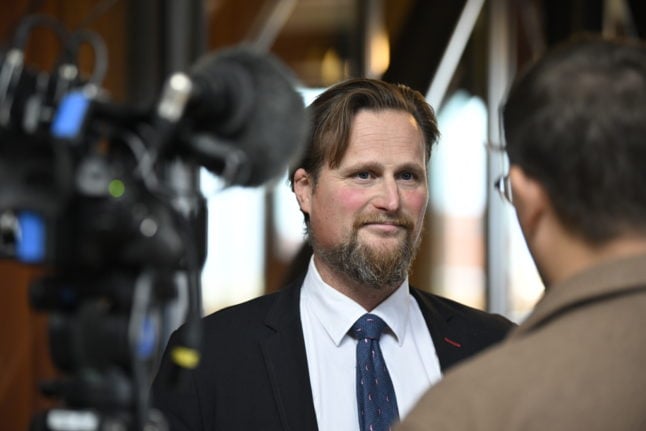“This is not the high-cost protection we were promised and which we promised our voters,” Carl Johan Sonesson, the Moderate head of Skåne’s regional government wrote in the Expressen newspaper, together with Carina Wutzler, mayor of Vellinge, Christian Sonesson, mayor of Staffanstorp, and Anna Jähnke, the councillor in charge of regional development.
The four politicians, some of the most powerful Moderates in the region, said that when Energy and Business minister Ebba Busch announced the government’s plans to support those facing power high power prices, they had been astonished.
“There were many of us among the Moderates in Skåne who both raised our eyebrows and needed to listen again before we understood that what was being presented was something completely different from what we had been promised,” they wrote.
“Instead of high-cost protection for the coming winter, what was presented was a system of repayments for the year which has already passed.”
They wrote that the system announced last week would mainly benefit those on fixed contracts, even though it was people with variable contracts who were facing the biggest problem with prices. In addition, they wrote, the model presented would do nothing to protect businesses in Skåne from the high electricity prices this winter, which they warned risk leading to bankruptcies and unemployment.
READ ALSO: What do we know about Sweden’s electricity price subsidy?
“We, together with many other Moderates in Skåne promised people in Skåne that a vote for the Moderates would mean that a system for high cost protection would already be in place this winter,” they conclude. “We expect that our new prime minister and government keep that promise.”
Ulf Kristersson, Sweden’s prime minister, who himself represents the Moderate Party, said that in his opinion the system announced (which had in fact been ordered by the Social Democrats ahead of the election) was “close enough” to what his party had promised.
“I think it’s pretty close [to what we promised],” he said, saying that the government had had to alter their plans out of expediency. “It was because we were keen to get something done quickly, which it was possible to do.”
“I think it’s important that we could keep our promise to, before November 1st, say how we planned to handle retroactively the extremely high prices there have already been.”




 Please whitelist us to continue reading.
Please whitelist us to continue reading.
Member comments